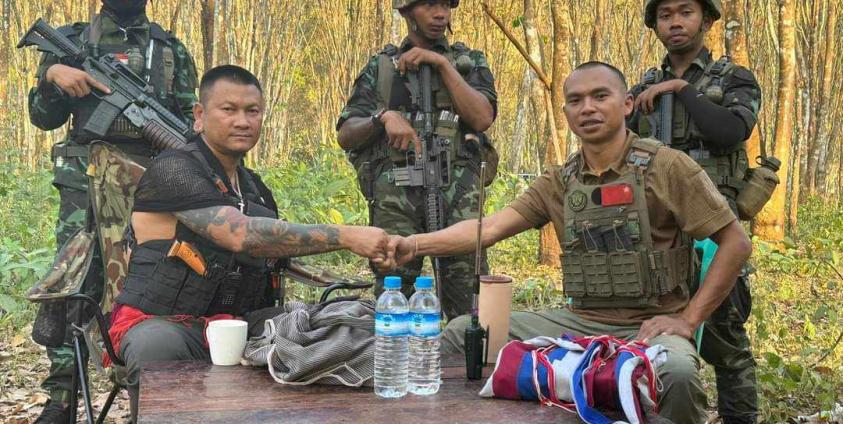The Military Council and its Border Guard Force (BGF) subordinates are taking proactive measures to prevent potential renewed attacks by the Karen National Liberation Army (KNLA) and People's Defense Force (PDF) on military installations along the Chaunghnitkhwa and Mudon road sections of Kyainseikgyi and Kyaikmaraw townships, a source close to the resistance movement said.
Over the recent days, the Military Council has expressed heightened concern about the possibility of renewed attacks on its military installations, attributing the apprehension over the coordination between Lion Battalion commander Eh Say Wah and Special Operation Force (SOF) comrade Aung San Shar, according to joint resistance forces.
"The Military Council and BGF are going all -out to bolster their defenses, by building new bunkers and digging trenches within their bases. However they seem reluctant to engage in external operations, focusing solely on fortifying their bases. Checkpoints have been established at base entrances, where passers-by are subjected to physical assaults and extortion”, the source told KIC.
Last year, resistance joint forces led by KNLA launched attacks on military installations, police stations, and outposts along the Chaunghnitkhwa and Mudon road sections in Kyainseikgyi and Kyaikmaraw townships, resulting in significant hardships and casualties of Junta troops.
Expressing concern about a potential recurrence in early 2024, the Military Council has initiated shelling in areas where KNLA and joint resistance forces are operating, forcing over 5000 residents from 15 nearby villages to evacuate from their homes.
The Taung Kyar Inn village police station and military base in Kawkareik District of Karen State have been captured by the resistance. In addition certain sections of the routes linking Kawkareik, Payathonzu (Three Pagodas Pass), and Kyainseikgyi townships have been blocked by the KNLA-led allied forces, causing military tensions in the region.
War-displaced locals in Kawkareik report a rise in civilian casualties, citing the escalation of drone bombings by Military Council bases and outposts in Karen State, as part of their counter-insurgency strategy.
"The Junta backers disseminate misleading information, asserting the safety of displaced individuals to return home. Trusting in these claims, people return only to face drone bombings in residential areas, resulting in casualties and the destruction of houses”, a Kawkareik local reported.
Conflict has persisted in Kawkareik for over a month, resulting in the deaths of over 20 civilians, including children, and left more than 30 injured, alongside the damage of approximately 200 houses in the suburbs, downtown wards, and villages.








